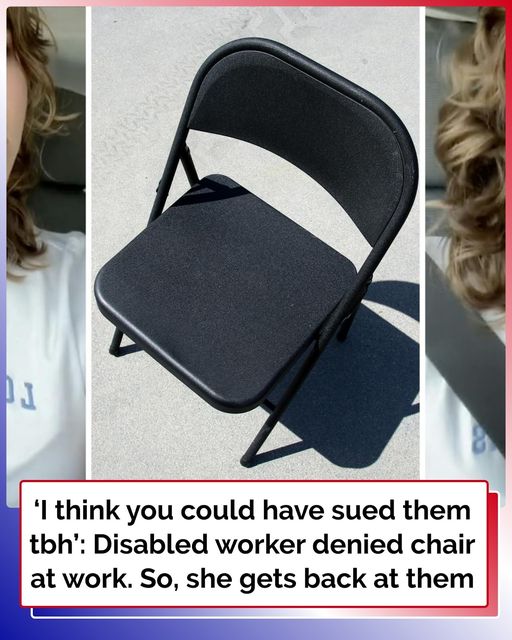In an unfortunate encounter of workplace discrimination, Elizabeth, a TikTok user, shared her experience of being denied necessary accommodations at her job due to her disability. Elizabeth suffers from Postural Tachycardia Syndrome (PoTS), a condition that can cause fainting, which the Social Security Administration recognizes as a disability. Despite having a doctor’s note and a legitimate need for a chair, her request was denied.
Elizabeth recounted her story while lip-syncing to Megan Thee Stallion’s song “B.A.S” in a viral TikTok video. She revealed that her manager had denied her the simple accommodation of a chair. In response, Elizabeth decided to get back at her workplace by allowing them to schedule her for 80 hours of work before quitting.
This kind of discrimination is not isolated. According to the Americans with Disabilities Act (ADA), ableism in the workplace remains a significant issue despite laws designed to protect disabled workers. A study highlighted by the ADA found that people with disabilities face both physical and social segregation at work. The 2021 Disability Statistics Compendium Annual Report shows that only 40% of disabled individuals are employed, compared to 70% of non-disabled people. The 30% employment gap can be attributed to ableism and discrimination in hiring practices. For instance, a study involving mock job applications revealed that applicants disclosing disabilities received 26% fewer expressions of employer interest than those who did not disclose such information.
Elizabeth’s case is reminiscent of a notable incident involving the Grand Hyatt. The hotel was sued after refusing a desk worker’s request for a chair due to a back impairment. The case was settled with the hotel paying $85,000, granting six weeks of paid leave, and providing the necessary chair. This case, among others, underscores the ongoing challenges faced by disabled workers in securing reasonable accommodations.
In the comments section of Elizabeth’s video, viewers expressed their outrage at her treatment, with many suggesting that she should sue her former employer. Comments like, “So instead of suing them you…. slightly inconvenienced them?” reflect the mixed reactions to her chosen method of retaliation. Elizabeth addressed these reactions in a follow-up video, explaining her condition and reiterating her inability to pursue legal action due to lack of time and energy. She confidently stated, “I already have a new job […] and to the person that was like, ‘You’re never gonna handle a real job if you can’t stand […] retail,’ I already have a job lined up for after I graduate, and they will happily give me a chair as well as other accommodations.”
The ADA requires employers to provide reasonable accommodations to employees with disabilities. Reasonable accommodations can include making existing facilities accessible, job restructuring, part-time or modified work schedules, acquiring or modifying equipment, providing qualified readers or interpreters, and other similar accommodations for individuals with disabilities. However, the reality is that many employers fail to comply with these requirements, either due to ignorance, indifference, or blatant discrimination.
Elizabeth’s story has sparked a broader conversation about the treatment of disabled workers and the importance of advocating for one’s rights. It serves as a reminder of the discrimination that persists in the workplace and the need for continued vigilance and advocacy to ensure that all workers, regardless of their physical abilities, are treated with respect and given the accommodations they need to perform their jobs effectively.
The issue of workplace discrimination against disabled individuals is complex and multifaceted. It involves not only legal considerations but also cultural and societal attitudes toward disability. While the ADA provides a legal framework for protecting the rights of disabled workers, the implementation and enforcement of these protections can be inconsistent.
Elizabeth’s experience highlights the need for increased awareness and education among employers about their legal obligations under the ADA. It also underscores the importance of creating a more inclusive and supportive workplace culture that values diversity and accommodates the needs of all employees.
In conclusion, Elizabeth’s story is a powerful example of resilience and self-advocacy in the face of discrimination. It serves as a call to action for employers to do better and for society to continue pushing for greater inclusion and equality for disabled individuals in the workplace. By sharing her experience, Elizabeth has not only shed light on a pervasive issue but has also inspired others to stand up for their rights and demand the accommodations they deserve.

